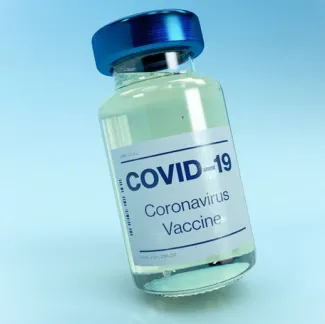
Post-Covid Financial Checklist
As more and more people are being vaccinated, hope has risen the COVID-19 pandemic restrictions will be a thing of the past by the end of 2021. Once it does subside, we will all be in a world that looks different than it did in February 2020. As your lives adjust to post-COVID normal, it’s a good idea to make some reassessments of your life, including your finances. Here are three aspects of your financial life to reassess “post-COVID”.
Reassess budget
According to one study, 64% of people changed their spending habits in 2020[1]. Make sure you are taking that into account when looking at your expenses for the year – there is a chance your spending may revert back to look more like 2019 than 2020. It would be important to realize that your spending may go up significantly going forward, therefore it may be a good idea to see if there are any costs you can cut. If you added streaming services, consider whether you want to continue with them. You may have spent more on home improvement or started a new hobby. It is important to make sure that you find out where the new spending in 2021 is coming from.
Perhaps you want to make some permanent changes to your spending because of what life was like during COVID – it would be good to write that down and keep track of how you are doing there. One of the most important things you can do is to make sure you are using your money that reflects your values and what is important to you.
Reassess allocation of savings
Hopefully your income was not seriously affected by the lockdowns, and if it was you are all too aware of how necessary an emergency fund is. A rule of thumb is to have 3 to 6 months of expenses in the bank in safe positions, but that number may have to be reconsidered. As our economy has gone through some changes, we have seen that some jobs are not coming back.
Going forward, it may be good to consider what might happen to your income sources and how long that could be affected. Some jobs were “essential” during the pandemic, but another crises could see them not be protected. So perhaps you may want to adjust the amount you have in your emergency fund, and even diversify your emergency fund holdings a bit beyond bank deposits. You also may want to consider ways to create income beyond your main income source to build some resiliency against a job loss or pay decrease. If we learned anything in 2020, it is that things can change quickly.
Reassess investments
The COVID crises produced some winners (Zoom)[2] and losers (travel and entertainment)[3] in the stock market. As a result, your investments may have become a bit skewed from the allocation you originally had set up. For example, if your portfolio had a mix of growth stocks and value stocks at 50% each, by the end of 2020 this allocation could look very different. The risk is that your portfolio could become imbalanced and not diversified to the extent that you wish it to be. This can lead to increased volatility and risk as well beyond what you are comfortable with.
In addition, some investments may not make as much sense to have going forward, while there may be some opportunities in the dynamic economy that we have right now. What is right for you depends on a number of factors, which is why you can schedule a meeting with us to see what would be best for you.
………………………………………………………………………………………………………………………………………………………………….
I have often heard, and used, the phrase, “this too shall pass” in regards to the pandemic. Once it does, you need to be ready for what comes ahead. A reassessment of your financial life could help you navigate the next few years because, as we have experienced, things will change.
[1] https://www.cnbc.com/2020/09/29/americans-have-changed-their-spending-habits-during-the-pandemic-heres-how.html
[2] This is not an endorsement or recommendation to buy or sell Zoom (ZM)
[3] This is not an endorsement or recommendation to buy or sell stocks in these industries

